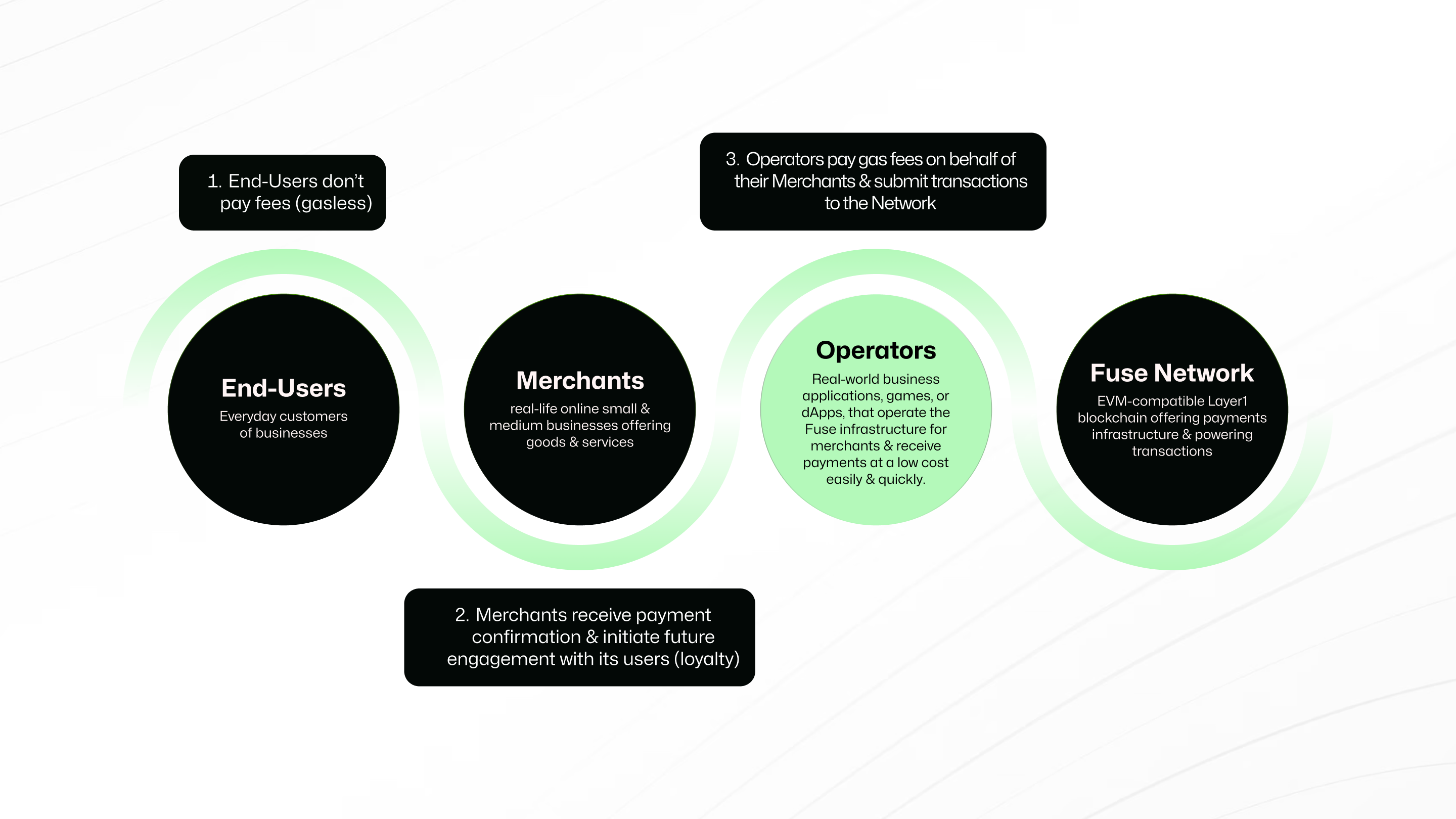Operators

What is an Operator?
Most blockchains operate on an effective business-to-consumer (B2C) basis. Users typically create their blockchain accounts, manage their private keys and pay network fees for every transaction they submit to the blockchain.
While the concept of individuals being their own banks and directly interacting with blockchain networks is appealing, at Fuse, we believe this model may not be practical or desirable in the long term for most users. Instead, we envision a future where most consumers interact with blockchain infrastructure through intermediaries or “Operators”.
These Operators can include integrators, payment providers, financial institutions, apps, consumer clubs, sharing economies, startups, local communities, online and offline retailers, and more. They use the Fuse Network blockchain and other tools to power payment services for their customers, enabling the exchange of real-world goods and services using the blockchain.
A key feature of Operators is that they pay network fees on behalf of users. Like in traditional finance, financial service companies use a distribution platform or infrastructure to hide costs from end-users—for instance, Venmo or Square Cash cover transaction fees for using legacy systems.
Fuse embraces a similar concept. With fee abstraction, the user signs the transaction with their private key while the financial operator relays it and pays the fee behind the scenes. Fee abstraction is a compelling approach that can help Operators find the business models of the future.
By providing a suite of operator incentives, we aim to attract them to build and perform those experiments on Fuse. Establishing a healthy community of Operators that can share tools and business insights is a vital part of the Fuse vision. We believe that incentives for Operators will eventually be the primary driver of growth and the leading revenue generator in the Fuse Network.
Blockchain-based payments give Operators more because every transaction made on Fuse Network can automatically share the fee with the operator. It also makes transactions more efficient because they are cleared and settled in one transaction. Additionally, with fee abstraction, no chargebacks dramatically change the cost structure, resulting in increased profits for Operators and lower costs for the merchants.